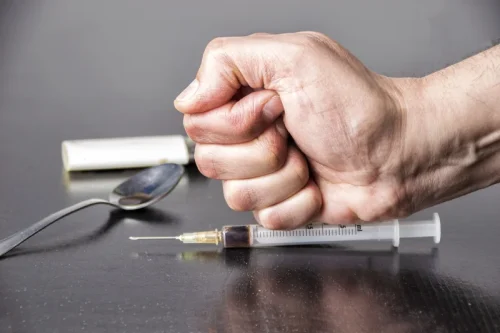Alcohol and Brain Fog: Symptoms and Treatment

A healthy withdrawal program can help you detoxify your body and brain from the harmful effects of alcohol, and generally start your addiction treatment journey. If you’re struggling with alcohol addiction, it’s important to consider starting an addiction treatment or healthy withdrawal program. Alcohol withdrawal (also called alcohol withdrawal syndrome, or AWS) happens when a person suddenly stops or significantly reduces drinking after long-term heavy alcohol use. This complication of long-term heavy drinking causes scarring of the liver. Scar tissue impairs the liver’s ability to create proteins, filter the blood, and other bodily functions.
- Over time, however, the body builds a tolerance to alcohol, and a person may have to drink more and more to get the same feeling.
- However, it is important to remember that individual experiences may vary.
- These environmental factors may be likened to physical exercise, but in this case, the “exercise” involves cognitive stimulation.
- Therefore, it would not matter whether the cognitively impaired alcoholic could or could not learn the behavior taught by the treatment program.
- Counseling and therapy deal with your addiction’s psychological and emotional aspects.
Seeking professional help:
- How similar forms of damage to the nervous system can result in differing behavioral consequences, including cognitive deficits, in different alcoholics remains unclear.
- When Ativan binds to GABA receptors, it makes it easier for GABA to bind to these receptors.
- We also use different external services like Google Webfonts, Google Maps, and external Video providers.
- Dr. Rubio has a heartwarming passion for working with seniors because of the wonderful connection they share.
- Megan has provided care in various settings over the last 15 years, working in clinics, telehealth, home health and skilled nursing facilities.
This causes sluggish movement, slurred speech, and slow reaction time when you are drunk. Alcohol also decreases the effects of glutamate, which regulates dopamine in your brain’s reward center. Reframe supports you in reducing alcohol consumption and enhancing your well-being. The Reframe app equips you with the knowledge and skills you need to not only survive drinking less, but to thrive while you navigate the journey. Our daily research-backed readings teach you the neuroscience of alcohol, and our in-app Toolkit provides the resources and activities you need to navigate each challenge.
What do healthcare professionals who work with adolescents need to know about alcohol?
It concludes by reviewing research on ways to improve treatment outcome by facilitating cognitive recovery. If you have wanted to quit drinking alcohol but were hesitant to do so because you feared that the withdrawal symptoms would be too severe, you are not alone. Many people are afraid that if they quit drinking, withdrawal symptoms could be difficult to manage, or even dangerous. Knowing what helps with alcohol withdrawal can make the experience less uncomfortable and risky. Did you know that alcohol-induced brain fog affects millions of individuals globally? This cognitive impairment, characterized by mental confusion, poor concentration, and memory issues, can significantly impact daily functioning.

Stage 4: 48 to 72 hours after last drink
For people who experience hallucinations as part of alcohol withdrawal, these may begin in the 12- to 24-hour time frame. When that person cuts out alcohol, there is a period when their brain hasn’t yet received the message and still overproduces the stimulating chemicals. With alcohol out of the equation, though, these chemicals cause withdrawal symptoms. Over time, however, the body builds a tolerance to alcohol, and a person may have to drink more and more to get the same feeling. Meanwhile, the brain is producing more and more neurotransmitters, making a person further imbalanced. Counseling and therapy deal with your addiction’s psychological and emotional aspects.

She has MBAs from UC Berkeley and Columbia University and a BA in International Business and Spanish from Dominican University in River Forest, IL. Susan is a deeply experienced PACE and senior care leader, having previously served as Director of PACE at Franciscan Alliance and Deputy Director at Indiana Division of Aging. Elizabeth Carty is an expert in the highly successful PACE model of care. As a former Director of On Lok PACEpartners Consulting and former COO of the Center for Elders’ Independence, Elizabeth has spent 20 years launching new centers and leading and improving existing PACE organizations.


Do not hesitate to reach out for help, as the effects of alcohol poisoning can be life-threatening. Remember, prioritizing self-care and seeking professional help are vital components in combating brain fog and achieving long-term success in your recovery. Toxicology screening is typically done with a blood or urine sample, and can also indicate if any other substances are in your body.
For most people, alcohol withdrawal symptoms will begin sometime in the first eight hours after their final drink. Making lifestyle changes such as getting enough sleep, eating a balanced diet, and exercising regularly can help reduce the severity of brain fog and speed up recovery time. Brain fog recovery time can be impacted by the severity of alcohol abuse, mental health issues, and lifestyle habits.
- When this happens, your central nervous system can no longer adapt easily to the lack of alcohol.
- This dangerous condition occurs when an individual consumes excessive amounts of alcohol, overwhelming their body’s ability to metabolize it.
- He understands the complexity of disease and creates customized treatment plans for each participant.
Ms. Purushothaman transforms technology for healthcare organizations, most recently as Chief Information Officer at Satellite Health, following technology leadership roles in several value-based care organizations. Dr. Chen creates an individualized plan of care for each person, taking into account their alcohol brain fog caregivers, their social lives, and other factors that go into their care outside of purely medicine. She approaches each patient as a whole person and ensures every aspect is being treated. She loves taking care of older patients because they’ve lived long lives and have so many stories to tell.
Alcohol-induced brain fog is a state of confusion, lack of focus and mental obscurity that can occur after drinking alcohol and during withdrawal. Severe alcohol abuse can even result in smaller and lighter brains – a worrying consequence that we must be aware of. However, if you’re struggling with brain fog or other symptoms of alcohol withdrawal, it’s important to seek professional help. Ativan and other benzodiazepines are considered first-choice preferred treatment options for alcohol withdrawal. These medications are proven to treat and prevent alcohol withdrawal symptoms, including lowering the risk of seizures and delirium.
